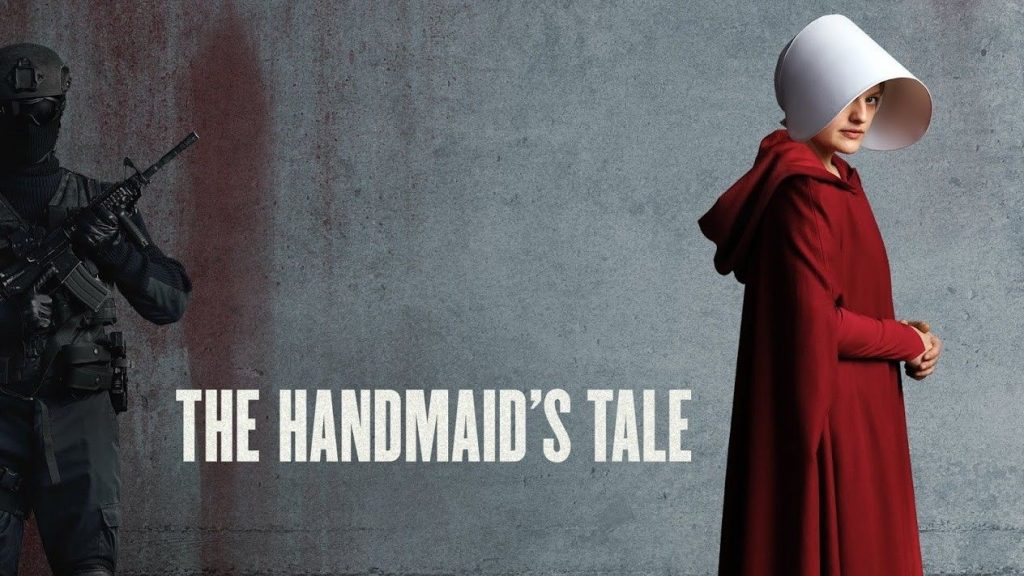Series : The Handmaid’s Tale
Season 1
Absolute success, intense shock – even traumatic in its first three episodes for the least radical – “The Handmaid’s Tale” opens under our feet a vertiginous gulf, echoing perfectly the most torturous anguishes of our poor era: the rise of religious fundamentalism , the fascism inherent in American society, the exponential explosion of the effects of the destruction of our environment, the fragility of democracy and the recent victories of the equality of the sexes … everything is there, and brilliantly combined in a cocktail at once intoxicating and devastating.
Even if the original novel – which I have not read – is certainly essential to the success of the series thanks to the invention of a particularly abject form of slavery, it is necessary to praise the ambition of Bruce Miller and his team who have made no compromise on their radical vision of a dystopian present with asphyxiating cruelty – yet completely believable as it takes root in a reality that is ours: beautifully staged, most episodes of this first season – with a special mention for the first three, frighteningly anxiogenic, and for the last, emotionally unstoppable – are to be hoisted to the pinnacle of what the great “Science Fiction” must be: a comment relevant to the fate of human society and its political systems, a lucid warning of the evil that lurks deep within us, all sumptuously wrapped in formally brilliant entertainment. Let us end by praising Elisabeth Moss’s astonishing talent, here equal to the greatest actresses, carrying the complete success of this story of submission (Houellebecq’s book, so different but so comparable, echoes the theme of the series, as well as “2084”, the masterpiece of Boualem Sansal). After “Mad Men” and “Top of the Lake”, here is the continuation of a stellar trajectory …

Season 2
We had no doubt that “The Handmaid’s Tale” would not be able to maintain the level of excellence of its first season, so that the disappointment created by a second season much more scattered, less homogeneous also stylistically, is not not too cruel. The main problem of the series is that, detaching itself from the original novel which it exploited the substance, it loses a little this obsessive side which by making the singularity (… and which also made that some rejected it …) : following the episodes, we go back to discover the gradual shift of American society towards religious fundamentalism and fascism, to the tilt in the favor of a terrorist attack, where we follow the trajectory of Emily, condemned forced labor in a radioactive prison, which is certainly interesting, but takes us away from the heart of the subject: the survival of June in this deeply sick society, which is gradually sinking all the protagonists into madness.
Even if the dystopian passage of the diplomatic visit to Canada is really electrifying, it also serves as finally diversion, and it is with relief that we see the last episodes, much better, refocus on a “house” Waterford more and more deviant and torn. The last movement of the season, showing appropriately how the oppression against women all victims, whether mistresses or slaves, is superb, and makes us all the more regret the conclusion of the season, the choice June is very unlikely, and it is suspected that logic has been imposed more by the need to produce a third season than by the psychological correctness of the character (always superbly incarnated by Elisabeth Moss, who is likely to have found here the role of his life …).


